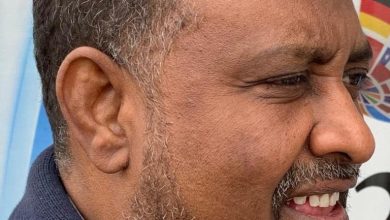Opinion
Why Did Darfur Join Sudan Late: From a Vassal State to a Colony

By Abdullah Ali Ibrahim
There has been reckless talk that Darfur was an independent sultanate separate from Anglo-Egyptian Sudan until its invasion in 1916. Various groups built political agendas based on this detail. Some Darfur militants presented the issue as a fault of the Salvation State in their long and bloody war against it. They intended to declare that they were not originally from this oppressive country. The Nile River State group hijacked this argument to advocate for Darfur’s separation from Sudan and its return to its alleged independence.
This is all nonsense. We will see from my free translation below of a text about the issue of Darfur’s late integration into Sudan from the book “The Sorrows of Darfur” by the seasoned Sudanese historian M.W. Martin (no one has accessed the British archives like him) that Darfur was not independent before its occupation in 1916. The reality was that Britain had ceased its colonization of Darfur along with the rest of Sudan for political and financial reasons. Then, it considered it a subordinate emirate and imposed tribute on it.
Now, here’s the text from Daly:
After the Battle of Kerreri, a group from the ruling family raced for the throne of the Sultanate of Darfur, including Ali Dinar, beside Ibrahim Ali, the grandson of Sultan Ibrahim Qarsh. But Ali Dinar was the quickest to reach El Fasher. Ibrahim sought assistance from Kitchener, the Governor-General, against Dinar. Kitchener told him the prize goes to the one who arrives first. Dinar defeated Ibrahim at the Battle of Um Shanqah. Dinar made every effort to reassure Kitchener of his loyalty to the new regime. Knowing his tense relationship with the Mahdist state, the English trusted him with difficulty before accepting his allegiance.
The delay of colonial invasion to Darfur until 1916 was due to the weakness of the new government and Darfur’s own remoteness. Lord Cromer, the British Consul General in Cairo, had the final say in the Sudan government’s policy. He stood in the way of Wingate, the director of the Egyptian Army’s intelligence, in his attempt to extend the invasion to Darfur. While Wingate saw the occupation of Sudan as a British retribution for the death of Gordon, Cromer saw it merely as securing Egypt’s rear. Cromer saw no reason to spend on a campaign against Darfur that would drain Egypt’s treasury after he was reassured of its safety. He knew nothing about Darfur and cared even less. If Dinar could manage it well, it would cost neither Egypt nor Britain any money, so there was no harm. Darfur would remain a subordinate African entity by agreement.
The military officials in the new government wanted to invade Darfur, but they leaned towards Cromer’s position knowing their state resources were just sufficient. When Wingate wanted to raise both the Egyptian and British flags in Darfur, Cromer stopped him. Cromer’s vigilance increased in leaving Darfur to the soldiers “hungry for land and fame.” Instead, he advised maintaining a delicate balance with Dinar. They showered Dinar with titles in their correspondence with him, which reflected Wingate’s inability to achieve his goal more than their esteem for Dinar. Thus, he went from “Wingate’s agent” to “governor” to “the Prince Ali Dinar governing Darfur” to finally “Sultan Ali Dinar.”
Wingate’s letters carried the designation of Darfur as a “vassal state” (vassalage) to the Sudan government in addition to a symbolic tribute of 500 pounds annually. They then gave him free reign over the sultanate.



